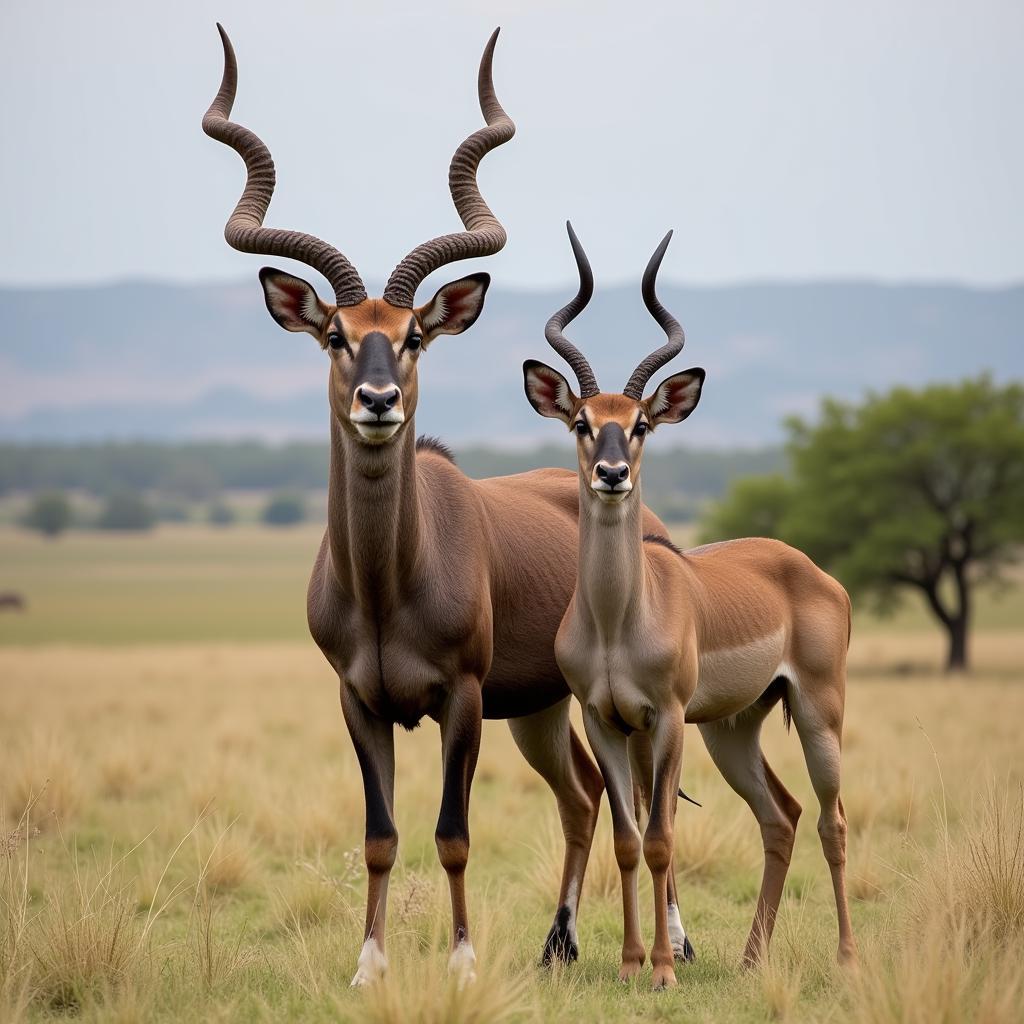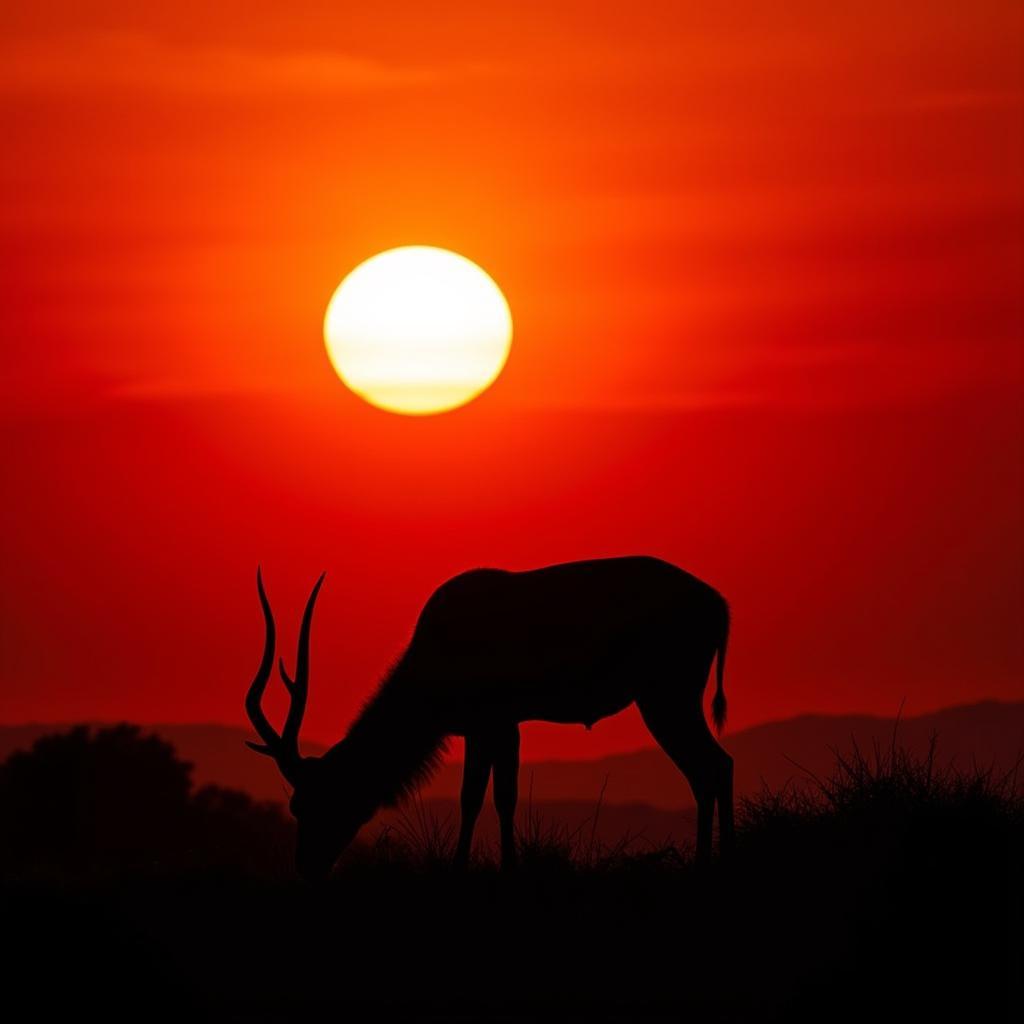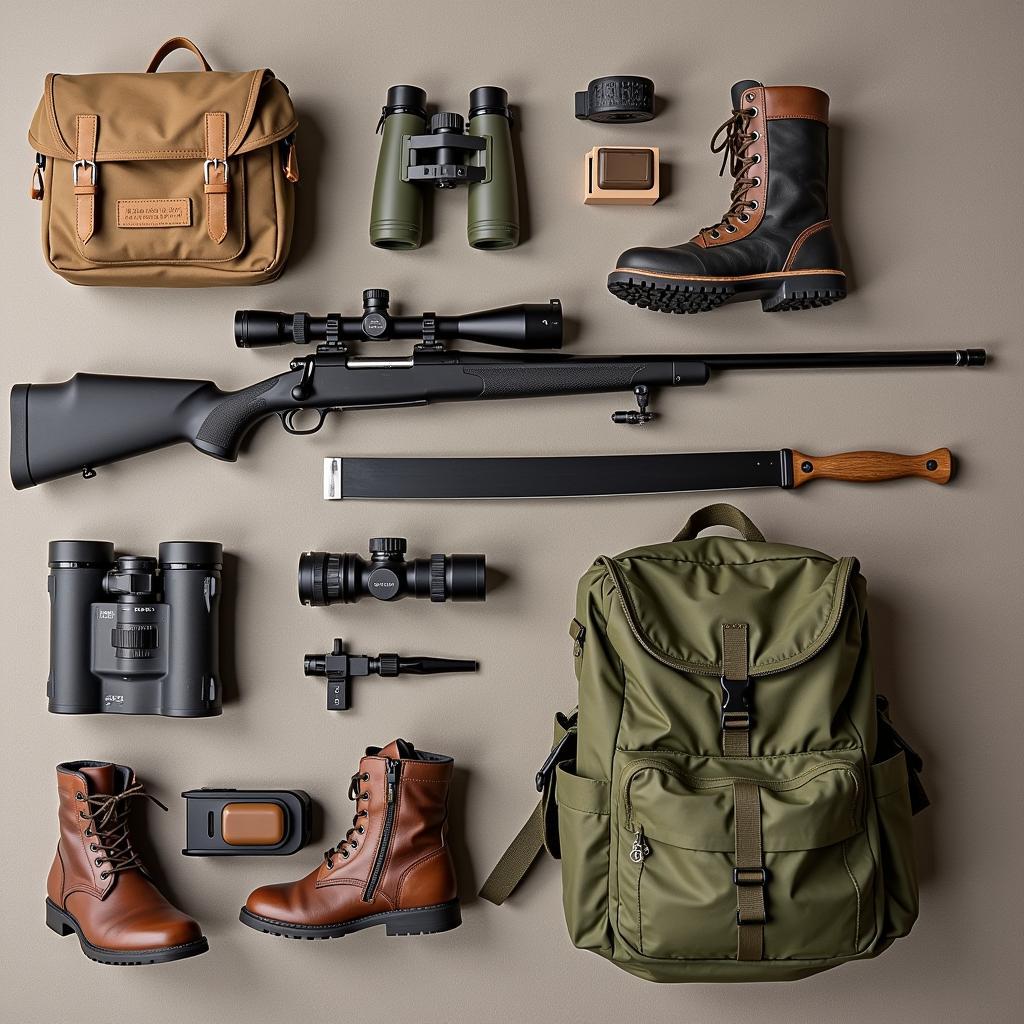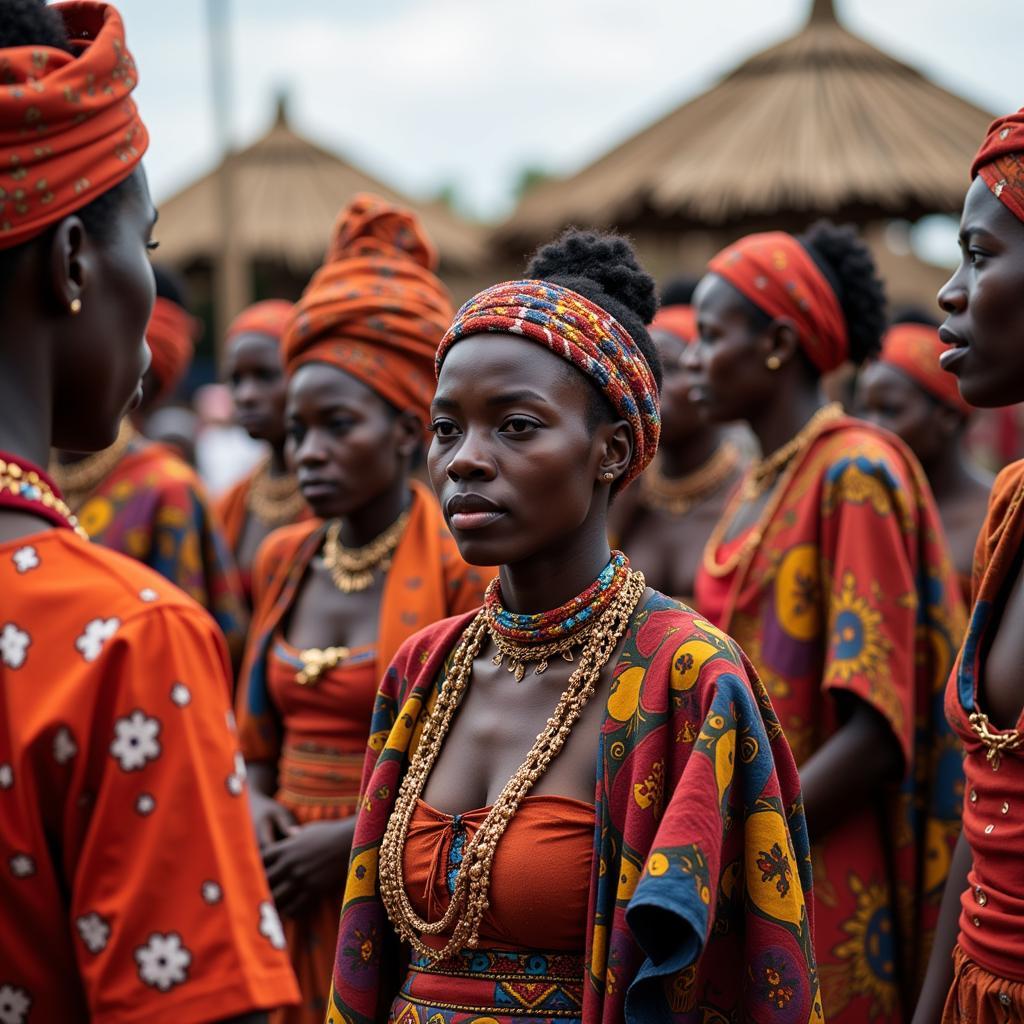The African Kudu Hunt: An Ancient Tradition
The African Kudu Hunt is a pursuit steeped in tradition, challenging hunters for centuries with its unique blend of skill, patience, and respect for the land. This majestic antelope, with its iconic spiraled horns and striking markings, represents a true prize for those seeking an authentic African hunting experience. From understanding the kudu’s behavior to navigating the diverse landscapes they call home, this article delves into the intricacies of the African kudu hunt.
Understanding the Kudu
Before embarking on an African kudu hunt, it’s essential to understand the animal itself. Kudu are divided into two main subspecies: the greater kudu and the lesser kudu.
- Greater Kudu: Known for their impressive size, with males reaching heights of up to five feet at the shoulder and sporting horns that can spiral over five feet long.
- Lesser Kudu: Smaller and more elusive, the lesser kudu inhabit dense bushland and are recognizable by their vertical stripes and smaller, tighter spirals on their horns.
Both species are highly adapted to their environments, with keen senses of hearing and smell, making them a true challenge for any hunter.
 Male and Female Kudu
Male and Female Kudu
Choosing Your Hunting Ground: Diverse Habitats
African kudu inhabit a variety of habitats across sub-Saharan Africa, each presenting its own set of challenges and rewards for hunters.
Southern African Savannas
The vast savannas of countries like South Africa, Namibia, and Botswana offer classic kudu hunting experiences. Open woodlands interspersed with grasslands allow for spot-and-stalk hunting, requiring patience and precision. Hunters often utilize blinds near waterholes or game trails, waiting for the perfect opportunity for a clean shot.
 Kudu at Sunset
Kudu at Sunset
East African Woodlands
In East Africa, countries like Tanzania and Kenya offer kudu hunting in denser woodlands and acacia thickets. These environments require a different approach, often involving tracking with experienced guides and utilizing dogs to flush out the kudu from their cover.
Essential Gear for a Successful Hunt
Proper gear is crucial for a successful and ethical African kudu hunt.
- Rifle: A rifle with a caliber suitable for medium to large game, such as a .300 Winchester Magnum or a 7mm Remington Magnum, is recommended.
- Optics: High-quality binoculars and a scope are essential for spotting and accurately judging distance in varying terrain.
- Clothing: Choose breathable, neutral-colored clothing suitable for the climate and terrain.
- Other essentials: A good pair of hunting boots, a hat, sunscreen, insect repellent, and a first-aid kit are also essential.
 Essential Hunting Gear
Essential Hunting Gear
The Ethics of Kudu Hunting
Ethical hunting practices are paramount in ensuring the long-term sustainability of kudu populations.
- Hunting Permits: Always obtain the necessary hunting permits and adhere to all local hunting regulations.
- Fair Chase: Practice fair chase principles, ensuring the animal has a sporting chance and avoiding practices that give hunters an unfair advantage.
- Selective Harvesting: Target mature males with well-developed horns, allowing younger males to mature and contribute to the breeding population.
- Respect for the Animal: Treat the animal with respect throughout the hunt and ensure a quick and humane kill.
The Thrill of the Pursuit
The African kudu hunt is more than just a hunt; it’s an immersive experience connecting hunters with the land, its wildlife, and the ancient traditions passed down through generations. The challenge of tracking a wary kudu through diverse landscapes, the adrenaline rush of the stalk, and the satisfaction of a successful and ethical harvest create memories that last a lifetime.
FAQs About African Kudu Hunting
Q: What is the best time of year to hunt kudu in Africa?
A: The best time to hunt kudu in Africa is during the cooler, dry season, typically from May to October, when vegetation is less dense, and animals are drawn to water sources.
Q: How much does an African kudu hunt cost?
A: The cost of an African kudu hunt can vary widely depending on factors such as the hunting destination, duration of the hunt, and the outfitter chosen. On average, you can expect to pay between $5,000 and $15,000 for a reputable outfitter and a quality hunting experience.
Q: Are there any conservation efforts in place for kudu populations?
A: Yes, many African countries have implemented conservation programs to manage and protect kudu populations. Sustainable hunting practices and anti-poaching efforts play a significant role in these initiatives.
For more insights into African wildlife and hunting practices, explore our related articles:
- African Kalahari Desert Kudu Persistence Hunt
- African Antelope Identification
- African European Mounts
Planning Your African Kudu Hunt
Ready to embark on an unforgettable African kudu hunt? Contact our experienced team at African Hunting Safaris Agency to start planning your dream safari.
Remember, an African kudu hunt is a privilege, and by embracing ethical hunting practices and respecting the land and its wildlife, we can ensure that this ancient tradition continues for generations to come.
